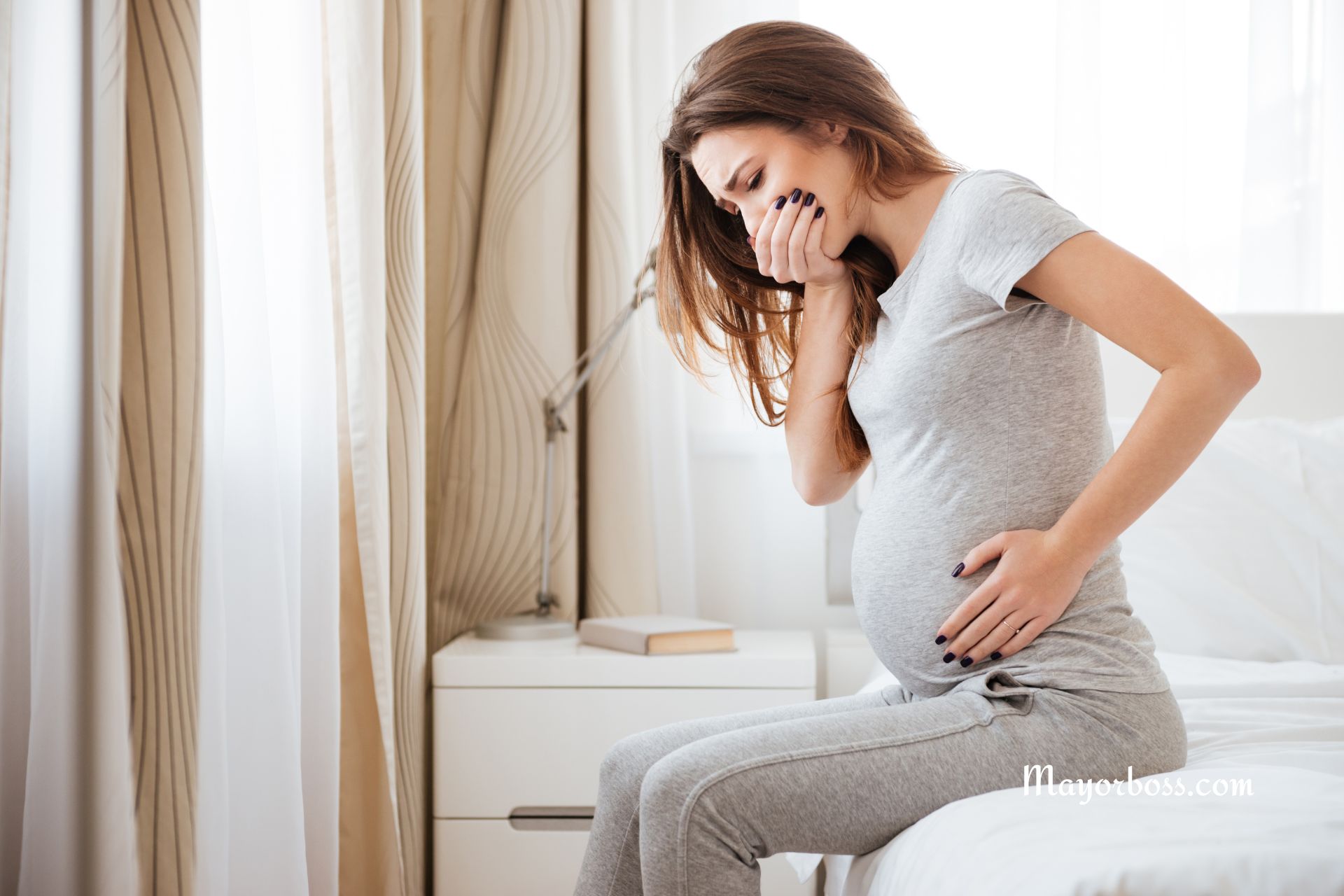Why Do Pregnant Women Often Burp During Pregnancy?
Pregnancy is a beautiful journey that brings about numerous changes in a woman’s body, some of which can be quite surprising. One such change is an increase in burping. Yes, you heard that right! Many pregnant women find themselves burping more than usual. But why does this happen? Let’s break it down in a simple and understandable way.

The Science Behind Burping
Firstly, burping, also known as belching, is a natural process where the body expels excess air from the stomach through the mouth. Now, when you’re pregnant, your body undergoes several hormonal changes. One of the key players here is progesterone, a hormone that increases significantly during pregnancy.
Hormonal Changes
Progesterone is crucial for maintaining a healthy pregnancy, but it also relaxes the muscles in your body, including those in your gastrointestinal tract. This relaxation slows down digestion, allowing gas to build up more easily and making you feel bloated. As a result, you might find yourself burping more often to release this trapped air.
Growing Uterus
Additionally, as your pregnancy progresses, your growing uterus starts to put pressure on your stomach and abdominal cavity. This pressure can cause stomach acids and gases to push upwards, leading to more frequent burping. Also, this increased pressure can make it harder for your body to keep stomach acids down, which might lead to heartburn or acid reflux, further contributing to the feeling of needing to burp.
Dietary Factors
Your eating habits during pregnancy can also play a role. With cravings and the need to eat smaller, more frequent meals, pregnant women might ingest more air while eating or choose foods that naturally produce more gas. Foods like carbonated beverages, beans, and certain vegetables can increase gas production, leading to more burping.
Tips for Managing Increased Burping During Pregnancy
While burping is completely normal and usually not a cause for concern, there are ways to manage it:
- Eat Slowly: Take your time eating and try to eat smaller, more frequent meals instead of large ones. This can help reduce the amount of air you swallow and the pressure on your stomach.
- Avoid Carbonated Drinks: Sodas and sparkling water can increase the amount of gas in your stomach.
- Stay Upright After Eating: Sitting or standing helps keep the digestive juices down and reduces burping.
- Wear Comfortable Clothing: Tight clothing can increase pressure on your abdomen, so opt for loose-fitting clothes.
When to Consult a Doctor
Generally, burping during pregnancy is not something to worry about. However, if you experience severe discomfort or pain, or if the burping is accompanied by other concerning symptoms, it’s wise to consult your healthcare provider. They can offer advice tailored to your specific situation and ensure that everything is proceeding smoothly with your pregnancy.
Pregnancy is a time of significant change, and increased burping is just one of many adjustments your body will make. Understanding these changes can help you navigate your pregnancy with more comfort and less worry.
Frequently Asked Questions
- Is burping a sign of a healthy pregnancy? Yes, burping can be considered a normal part of pregnancy due to the hormonal changes and physical adjustments your body goes through. However, it’s not necessarily a sign of pregnancy health but rather a common symptom.
- Can burping during pregnancy harm the baby? No, burping is a natural bodily function and does not harm the baby. It’s simply a sign that your body is adjusting to pregnancy.
- Are there any foods I should avoid to reduce burping? While it varies from person to person, reducing the intake of carbonated drinks, spicy foods, and certain vegetables known for causing gas (like broccoli, cabbage, and beans) can help manage burping.
